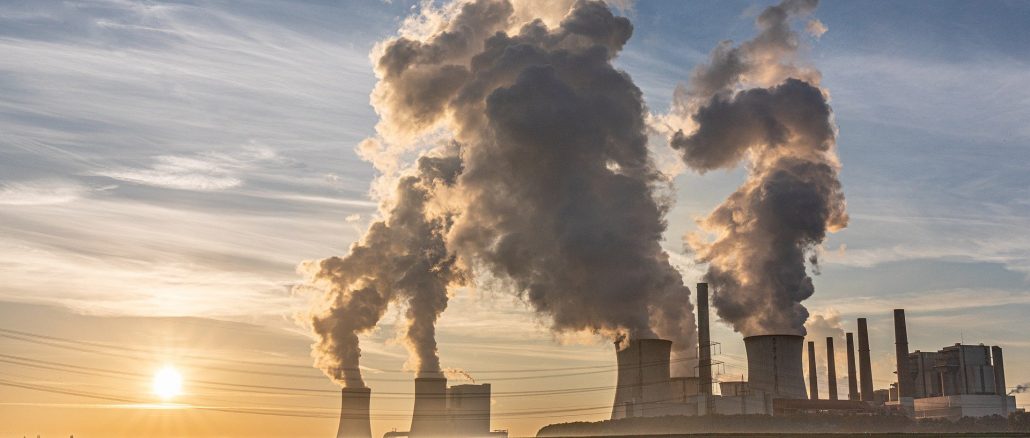
[dropcap]T[/dropcap]he 26th United Nations Climate Change Conference of the parties began on the 31st of October and is set to run until the 12th of November.
The conference is being held in Glasgow and is led by the president for COP26, Alok Sharma, British MP.
Speaking at the global conference this weekend, Boris Johnson has urged countries to pull together and to make bold compromises and ambitious commitments to tackle climate change.
Over 100 countries present have agreed to cut their methane emissions by 30% by 2030. At present, methane emissions account for approximately 30% of global warming. Ireland are set to be among the 100 countries to sign the pledge to cut methane emissions.
Taoiseach Michael Martin has stressed that the plan to cut methane emissions by 30% is a global target, not a national one.
According to the latest Environmental Protection Agency data, agriculture is responsible for 37% of Ireland’s emissions, and 80% of emissions from farming are directly linked to methane emissions.
Michael Martin told RTE radio’s Morning Ireland that “farming will have to change, energy will have to change and transport will have to change.”
He added that everyone has a responsibility to deal with the realities of climate change or “it will catch up with us if we don’t do something.”
The Irish Farmers Association have said that decreasing emission levels by 30% will mean that many agricultural farms will not remain viable and that “this will have a profound impact on the rural economy.”
Ireland along with 100 other countries in attendance signed a pledge to end deforestation by 2030. This was one the first of the major deals agreed on at the summit.
The countries that have signed the pledge to end deforestation account for approximately 85% of the world’s forests. These include Brazil, Indonesia, Russia, the U.S and the UK.
According to the BBC, more than 30 of the world’s biggest financial companies including Axa, Aviva and Schroder have promised to end investment in activities that contribute to deforestation.
In addition to this, governments of 28 countries have made the commitment to remove deforestation from their global trade of food and agriculture products such as cocoa, palm oil and soya. Indonesia is the world’s largest exporter of palm oil, which has led to accelerated deforestation and loss of territory for indigenous groups.
The pledge to end deforestation includes approximately $19.2 billion of public and private funds proposed to restore damaged land, support idigenous communities and tackle wildfires.
India is one of the world’s largest emitters of greenhouse gases along with China, the EU and the United States. India has pledged to reach carbon neutrality by 2070, while China has made plans to reach carbon neutrality by 2060.
However, the main goal for COP26 was for all countries to commit to cutting their emissions to net zero by 2050. The EU and the U.S are among those that have committed to reaching this goal by 2050.
Former President of Ireland, Mary Robinson, chairwoman of The Elders spoke at the summit and described the climate crisis as a health crisis. She stated that women and girls were among the most vulnerable due to this health crisis.
She also spoke about how mental health and depression are taking a toll on huge numbers of people as a result of climate disruption, this includes the trauma experienced after climate disasters.
Greta Thunberg, the young Swedish climate activist has labelled COP26 as a “failure” and “a PR event”. Speaking in Glasgow, she called for immediate action and drastic cuts to global carbon emissions.
“The people in power can continue to live in their bubble filled with their fantasies, like eternal growth on a finite planet and technological solutions that will suddenly appear seemingly out of nowhere and will erase all of these crises just like that,” Thunberg said.
“All this while the world is literally burning, on fire, and while the people living on the front lines are still bearing the brunt of the climate crisis,” she stated.
Since the beginning of COP26, there have been approximately 200 rallies and protests taking place across the world demanding greater action for climate change.
The protests and rallies were part of a global day of action which aimed to increase the pressure for action from world leaders present at the COP26 global summit. On Friday the 6th of November, protestors took to the streets in Dublin, Belfast, Cork, Galway, Waterford, Limerick and Derry.
Eamon Ryan, Ireland’s Minister for the Environment, Climate and Communications travelled to the conference on Monday.
On Saturday Minister Ryan was said to have Covid-19 and would be unable to attend. On Sunday it was announced that he had later received a negative test and his plans to travel to Glasgow would go ahead as planned.
It seems that COP26 is superficially a global success story, but climate activists have expressed that a lot will remain to be desired.
Kathleen Keane
Image Credit: Pixabay



